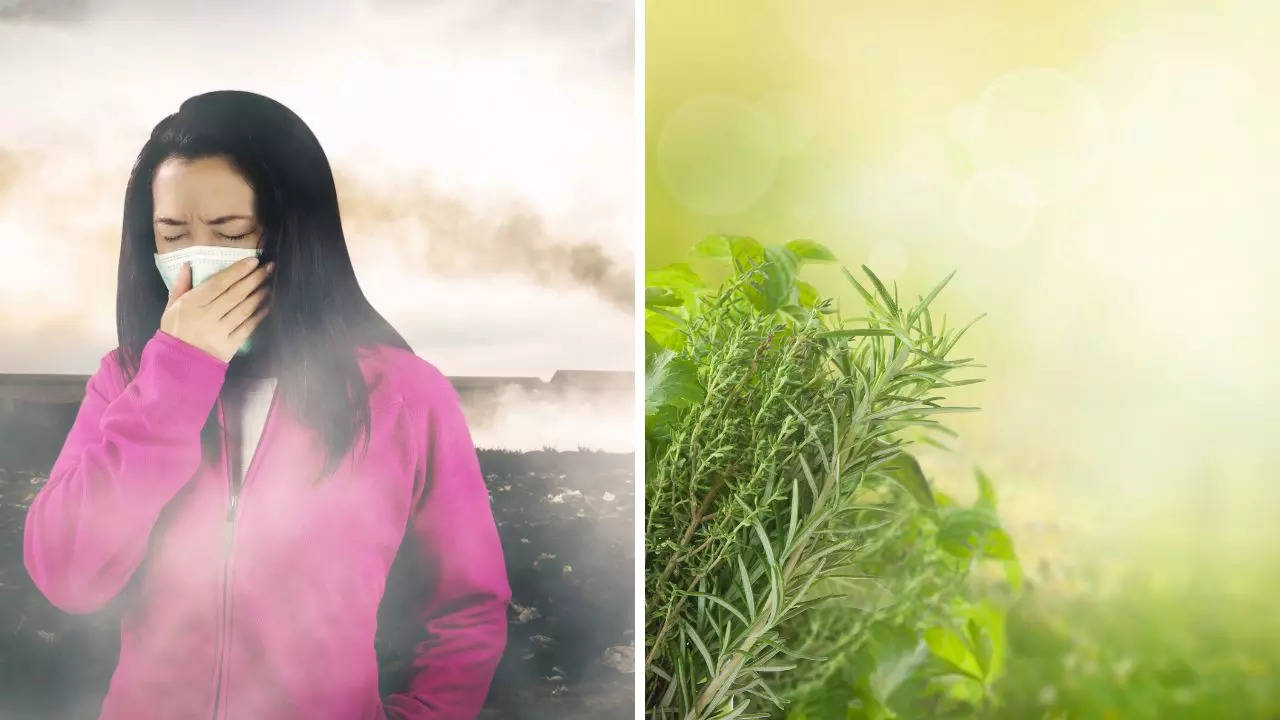
With AQI of Delhi touching poisonous levels, visits to OPDs have increased. Doctors in leading hospitals are reporting a significant rise in patients reporting pollution-linked health issues such as respiratory issues, worsening asthma, eye irritation, sore throat and sinus congestion. Dr.
Chandrakant Tarke, Senior Consultant, Dept of Pulmonology, Apollo Hospitals, warns how prolonged exposure to pollution can also lead to more severe conditions, such as decreased lung function, cardiovascular issues, and a weakened immune response, which makes people more susceptible to respiratory infections. With the current health concerns in Delhi-NCR, any suggested remedy is bound to grab our attention. So, when lifestyle coach Luke Coutinho, known for helping people improve their lives through diet and lifestyle changes, talks about a herb called Kalmegh, it will catch everyone’s interest.
Of course, he shared it with some disclaimers, but it’s worth noting. This is especially important now, as doctors warn against using over-the-counter (OTC) medicines, like decongestants and antihistamines, without caution. They warn that while these medicines can ease symptoms for a while, they may cause side effects like high blood pressure, dry mouth, and drowsiness if used too much.
Older people should be extra cautious, as these medicines can interact with others they may be taking. For breathing problems, don’t use inhalers or steroids on your own without a doctor’s advice. If symptoms don’t go away, it’s better to consult a doctor instead of relying too much on OTC medicines.
What is Kalmegh? So, coming back to Kalmegh – is it really the wonder herb? It’s a herb commonly used in Ayurveda and naturopathy to manage issues like fatty liver and high blood pressure. Scientifically known as andrographis paniculata, it is native to India and Sri Lanka. It’s grown in parts of Asia and is trusted for treating bacterial infections and other illnesses.
However, it’s especially valued for its ability to detoxify the liver. Luke Coutinho, a lifestyle coach, shared his thoughts on the herb Kalmegh on his Instagram today, despite typically avoiding sharing herbal remedies on social media. He expressed how he worries that such remedies will be misused, may conflict with medications, or is maybe getting promoted without proper research.
However, he highlighted Kalmegh as a herb worth exploring, given his experience using it with patients during the lockdown, up until now. Luke believes Kalmegh’s anti-inflammatory properties can benefit people suffering from inflammation, asthma, or COPD, helping to ease symptoms and improve breathing. It may also help thin mucus, making it helpful for those with bronchitis or chronic respiratory infections, and it supports the immune system.
Additionally, Luke suggests that kalmegh may assist the body in detoxifying pollutants, which is particularly important in the current pollution crisis. He further adds it can be taken as a capsule or through boiled leaves, as recommended by Ayurvedic practitioners. However, there are differing views.
In a Twitter post from September, Dr. Abby Phillips, known as the Liver Doc, shared concerns about Kalmegh being misused and he even stated that it should be banned due to misleading claims about it curing cancer and treating jaundice. Luke’s post clearly highlights the need to responsibly explore remedies while staying vigilant about misinformation.
So talk to your doctor if you are already on a medication or are allergic to certain components. In the current scenario, since elderly and young children are particularly vulnerable to pollution, limit outdoor activities as much as possible, especially on days with high pollution levels. Use air purifiers indoors to reduce pollutants and wear N95 or similar quality masks outdoor.
Staying hydrated and avoiding exposure to smoke, dust, and other irritants is also crucial. Drinking warm fluids like herbal teas can help soothe a sore throat and loosen mucus. Inhaling steam with a few drops of eucalyptus or peppermint oil may relieve nasal congestion.
Honey and ginger tea have anti-inflammatory properties and can ease coughing. Including foods rich in antioxidants, like fruits, vegetables, and turmeric, helps strengthen immunity. However, these should complement, not replace, prescribed medications or preventive measures for severe symptoms.
Get Latest News Live on Times Now along with Breaking News and Top Headlines from Health and around the world..














